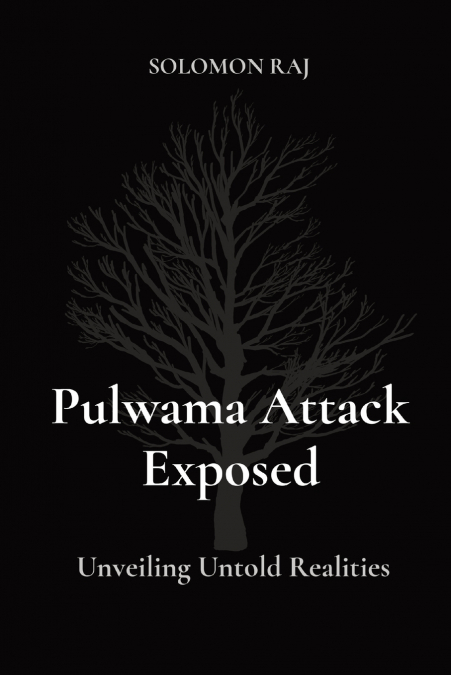
Solomon Raj
The book 'Pulwama Attack Exposed: Unveiling Untold Realities' is an engrossing and penetrating investigation into the tragic events that surrounded the Pulwama attack that took place on February 14, 2019. It provides readers with an in-depth comprehension of the myriad of factors that contributed to the formation of this pivotal moment in South Asian history. The author of this study, which has been extensively researched, delves into the events leading up to the tragedy, the attack itself, and the aftermath, therefore unraveling a web of intricacies that extend beyond what is reported in the news.A comprehensive account of the historical context of the Kashmir conflict is presented at the beginning of the book. This historical framework serves to set the stage for the seismic events that are to follow. The readers are led through the geopolitical complexities of the region, acquiring an understanding of the tensions that have persisted for a long time and the roles that have been performed by a variety of players. As a result of this contextual basis, the reader is prepared for a nuanced study of the Pulwama incident, which was a day that irrevocably changed the trajectory of ties between India and Pakistan.The tale takes a dramatic turn in the chapter titled 'The Fateful Day,' which provides a thorough and heartbreaking account of the attack that took place in Pulwama. The impact that this act of terrorism had on the convoy as well as the Indian paramilitary forces is depicted in a highly detailed manner, offering a devastating look at the human cost of this terrorist act. In order to create a thorough timeline that emphasizes the seriousness of the crisis, the author does a masterful job of capturing the earliest reactions and answers from the Indian government as well as the world community.The documentary titled 'Unraveling the Perpetrators' presents a comprehensive analysis of the inquiry, revealing the purported involvement of Jaish-e-Mohammed and Masood Azhar, the leader of the organization. Within the context of the attack, this chapter provides a critical analysis of international viewpoints, throwing light on probable linkages to external state actors and their involvement in providing support to the perpetrators of the attack. It encourages readers to contemplate the complexities of state-sponsored terrorism and the geopolitical chessboard that had a role in the occurrence of such events.This book does not shy away from the challenging concerns that are associated with intelligence failures. These questions are discussed in the chapter that is named 'The Intelligence Dilemma.' It provides a sobering reflection on the difficulties that are encountered in the process of averting attacks of this nature by presenting a critical examination of breakdowns in communication, information sharing, and coordination among intelligence organizations.As the story develops, 'Political Fallout' examines the aftermath that occurred within India, analyzing the influence that it had on the country’s politics as well as the contentious choice to carry out airstrikes in Balakot. This article provides a comprehensive overview of the global response to the growing tensions by summarizing the international reactions and diplomatic implications that have occurred.'Human Stories Behind the Headlines' shares personal experiences of the victims and their families, highlighting the emotional toll that the catastrophe has taken on individuals and communities. This helps to humanize the tragedies that have occurred. At the same time that it emphasizes the ethical duties that come with covering events of such significance, the book provides a critical analysis of the role that the media plays in shaping public perception.